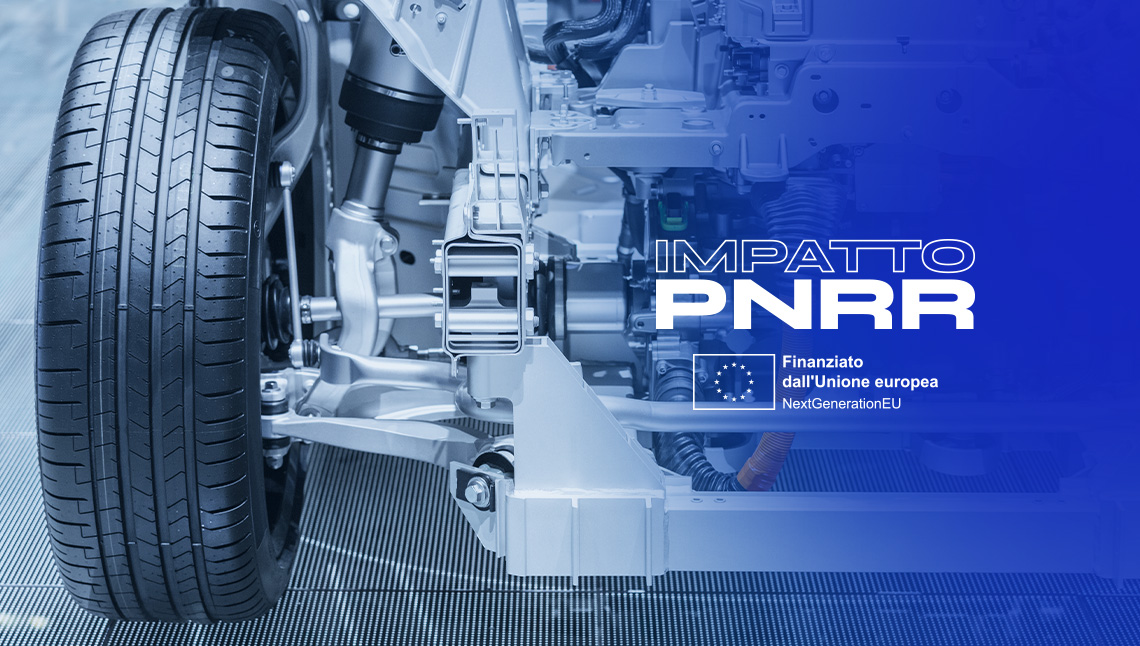
PNRR: Politecnico amongst the promoters of the National Centre for Sustainable Mobility
An exceptional public-private turnout with a total of fifty players distributed throughout the country. An investment of 394 million euros for the first 3 years (2023-2025). 696 dedicated and 574 newly recruited researchers. These are the numbers that provide the scope of a project that was created with the ambition of being a real tool for the growth and development of the mobility sector.
The Centre was created with a clear mission: to accompany the green and digital transition from a sustainable perspective, ensuring the industrial transition of the sector and to side local institutions in implementing modern, sustainable and inclusive solutions in the cities and regions of the country.
The National Centre for Sustainable Mobility is in fact a tangible response to the growth needs of a key sector for the economy, which alone is estimated to be worth 220 billion euros in 2030, thus absorbing 12% of the workforce. In this context, the EU institutions are pushing for the achievement of a new sustainable mobility in compliance with the Green New Deal indications.
The issues of decarbonisation, decongestion of transport networks, connected and smart autonomous mobility, vehicle and infrastructure safety, accessibility, and the introduction of new skills and competences into the market are increasingly relevant. The National Centre for Sustainable Mobility responds to these needs by supporting and stimulating the demand and supply of research, technological innovation, training and skills.
There will be five project vectors, i.e., the areas and domains of technology of greatest interest, such as: air mobility; sustainable road vehicles; waterborne transport; rail transport; light vehicles and active mobility. The National Centre will focus on making the mobility system “greener” as a whole and more “digital” in its management, with lightweight solutions and electric and hydrogen propulsion systems; digital systems for accident reduction; more effective solutions for public transport and logistics; a new model of mobility as a service, that will be accessible and inclusive.
The Centre will be structured according to the Hub&Spoke approach, i.e., with a central point in Milan and 14 nodes distributed in a capillary pattern from North to South, to guarantee that territorial rebalancing at the basis of the initiatives indicated by the PNRR and a major objective for the modernisation of the country.
“The Politecnico di Torino will bring to the partnership of the National Centre for Sustainable Mobility its most advanced skills, all its experience in managing complex projects and its consolidated relations with companies in research activities related to the two spokes it will coordinate, namely “Air mobility” and “Sustainable road vehicle”; it will also make a significant contribution to the research carried out in the Connected and Autonomous Vehicle, Connected networks and Smart Infrastructure, Innovative Materials and Lightweighting, and Electric Traction and Batteries spokes, which are other thematic nodes envisaged by the Centre”, comments Giuliana Mattiazzo, Vice-Rector for Technology Transfer at the Politecnico di Torino, who concludes: “The trump card of this initiative lies in the possibility of aggregating and establishing systematically the know-how acquired through the creation of national reference points in the various mobility issues, thus amplifying their impact and making them available to businesses, so as to develop innovation projects that reach the market with a high level of technological maturity; genuinely innovative initiatives that will contribute to the development of the country”.

